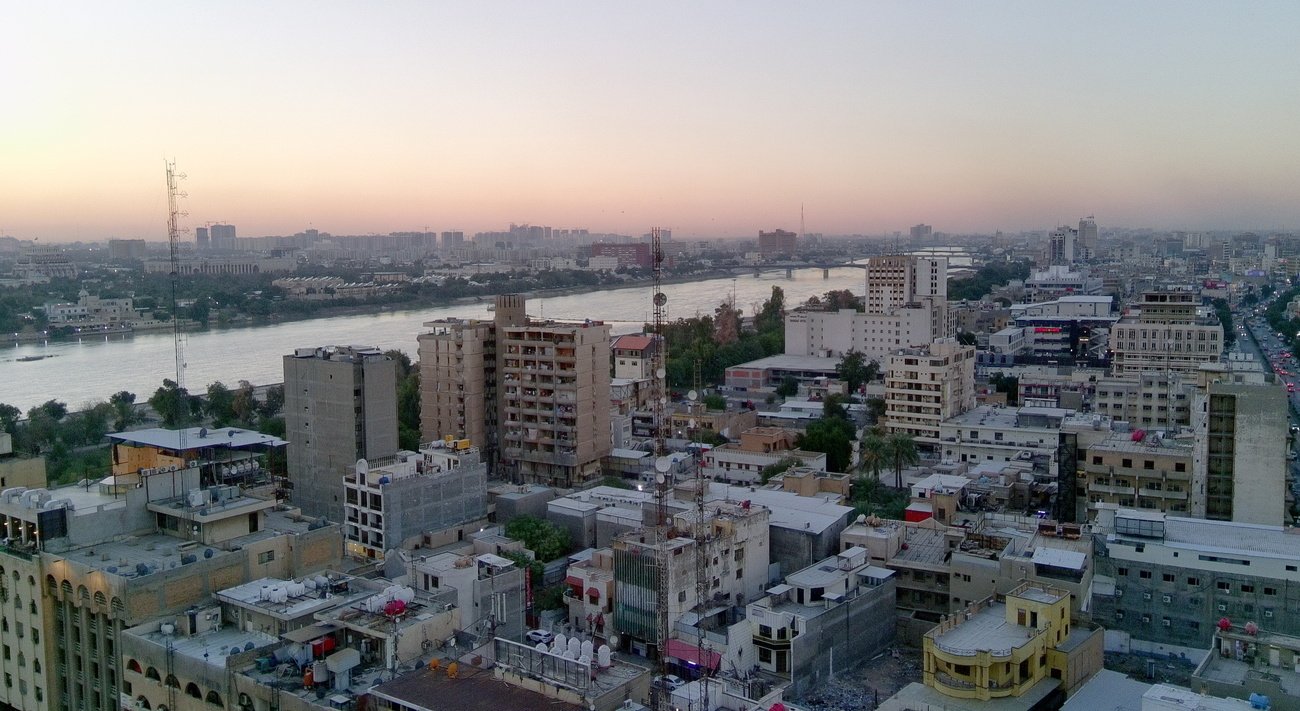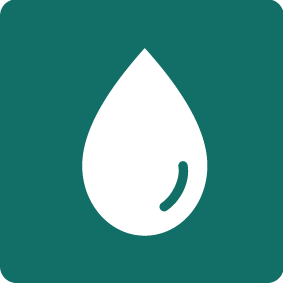
Switzerland seeks to boost water diplomacy in Middle East

Water supply is becoming increasingly critical in the Middle East. Switzerland is ready to contribute its expertise in this area.
+ Get the most important news from Switzerland in your inbox
“The Tigris has never been so low,” is a common refrain in October in Baghdad. People look at the low water level with concern.
Iraq, with its 46 million inhabitants, draws most of its water from the Tigris and Euphrates. However, this resource is becoming increasingly scarce in the country, which has been suffering from drought for years. The situation has been particularly critical in agriculture recently.
“Water is now more important than oil,” said Swiss Foreign Minister Ignazio Cassis in an interview with the Keystone-SDA news agency on the sidelines of his trip to the Middle East last week. There are more wars over water than over oil.

More
Is Swiss water aid for Jordan just a drop in the ocean?
Central Asia and the Middle East are particularly affected by this. The Ticino-based minister explained that he wanted to strengthen existing programmes on the ground, without giving any figures.
Topic in parliament
Parliamentarian Maja Riniker, who accompanied the trip, was also impressed by the importance of the topic of water in the region. “The topic was omnipresent in my meetings with my counterparts, especially in Jordan and Iraq,” she said.
Riniker said she would raise these issues in parliament as soon as her term of office as President of the House of Representatives ends in December. Like Cassis, she also believes that Switzerland can contribute its expertise.
“The forecasts on water stress, i.e. when the demand for water exceeds the available resources, actually show that the Middle East is directly affected,” says Christian Bréthaut, Scientific Director of the Geneva Water Hub and Associate Professor of Water Governance at the University of Geneva.
Water diplomacy
Switzerland is currently offering not only technical but also diplomatic support in global water management through its “Blue Peace” initiative. A branch office is located in the Middle East. The aim of the initiative is to facilitate dialogue between the countries in the region.
One of the main players is Turkey, where the Euphrates and Tigris rivers originate, explains Bréthaut. There is much more stability there than in Iraq or Syria, which have less capacity to react. Nevertheless, tensions are palpable.
The Iraqi authorities have repeatedly blamed the dams on the other side of the border for the significant drop in their flow rate. They claim that they now receive less than 35% of the water from these two rivers that is allocated to the country with its inadequate water management systems.
Strategic interest
The situation is also critical in Jordan, one of the most water-scarce countries in the world. The country is under particular pressure due to the influx of refugees, especially from Syria. A few years ago, Switzerland supported the opening of a centre for water diplomacy in the Jordanian capital Amman.
Can Switzerland use such steps in the area of water to assert its influence in a region that is increasingly of strategic interest? Bréthaut states that this is certainly the case, but that Switzerland is focusing more on its good offices, even though it is very competent in water management.
Good offices were one of the main topics during Cassis’ visit to Iraq. The country is undergoing reconstruction after decades of war and wants to position itself as a mediator.
No longer a taboo
On the question of whether wars over water are to be feared, Bréthaut notes a change. The occupation of the Mosul Dam in Iraq by the Islamic State in 2014 was one of the first warning signs that water infrastructure could be used as a weapon of war.
These types of attacks, which had previously been taboo, were subsequently repeated in other conflicts, for example in Ukraine, South Sudan and Syria. “However, around 30 water-related conflicts have broken out since the 1940s, while more than 300 agreements have been signed,” he said.
Translated from German by DeepL/jdp
We select the most relevant news for an international audience and use automatic translation tools to translate them into English. A journalist then reviews the translation for clarity and accuracy before publication.
Providing you with automatically translated news gives us the time to write more in-depth articles. The news stories we select have been written and carefully fact-checked by an external editorial team from news agencies such as Bloomberg or Keystone.
If you have any questions about how we work, write to us at english@swissinfo.ch

In compliance with the JTI standards
More: SWI swissinfo.ch certified by the Journalism Trust Initiative



























You can find an overview of ongoing debates with our journalists here . Please join us!
If you want to start a conversation about a topic raised in this article or want to report factual errors, email us at english@swissinfo.ch.